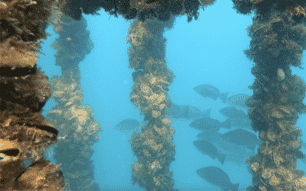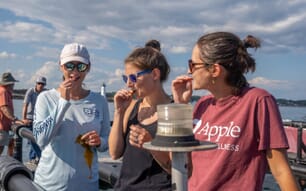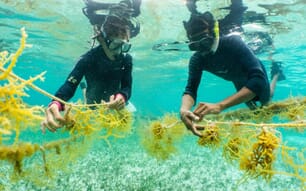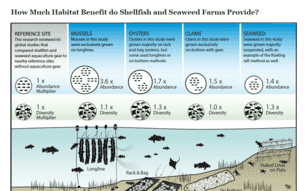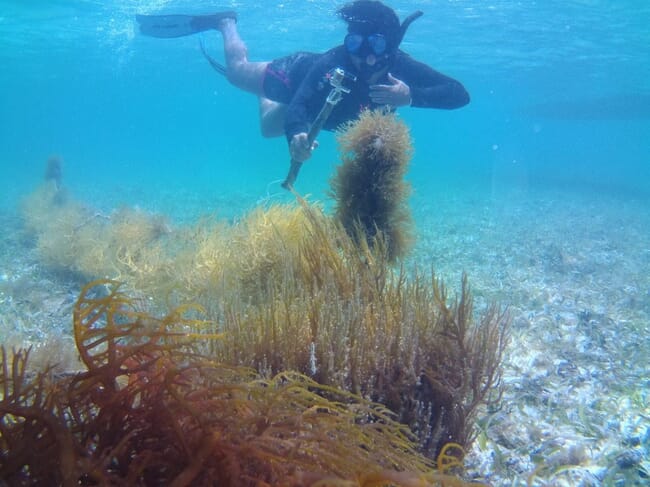
© BWSFA
Sitting at the table one evening in Placencia, I met the women who would soon form the Belize Women’s Seaweed Farmers Association (BWSFA). I was inspired by their stories and their vision for wanting to uplift their community. Each of these women came with their own ideas but they all shared a passion for the ocean, their country and seaweed farming.
The Nature Conservancy in Belize has been working with local partners over the last five years to help develop a sustainable seaweed industry that can provide social, economic and even ecological benefits to coastal communities and marine ecosystems. While, globally, seaweed is a commodity often farmed and sold for processing into carrageenan or agar, in Belize it is highly valued for local uses in cooking and as a nutritious ingredient in fresh smoothies. Farmers can even obtain up to US $15/lb of dried seaweed.
In addition to providing farmer training sessions for this sustainable coastal livelihood, our collaborative programme has been focused on testing and developing a seaweed farming system that protects and provides habitat for other commercially and ecologically important species, such as spiny lobster, parrotfish, snapper and a host of other species.
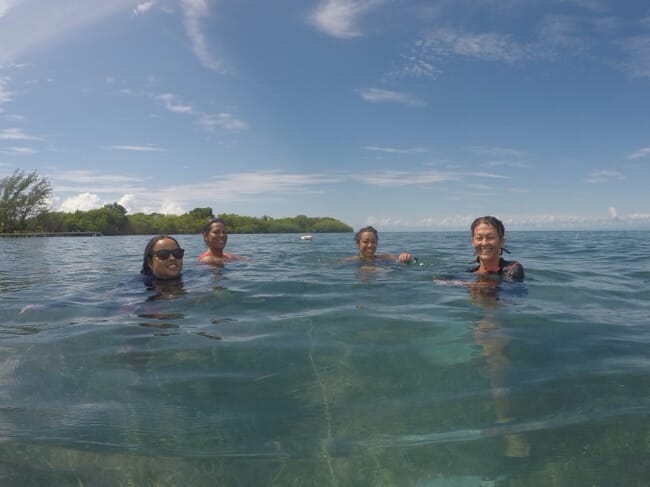
© Bailey Moritz
Globally, in areas such as Indonesia, women play a large role in the production of farmed seaweed. However, in Belize until recently, the majority of our fishers-turned-seaweed-farmers have been men. Many women were interested in learning more about the training sessions and were passionate about stewarding their local marine environments, but did not have the benefit of prior collaboration and membership in the local men’s fishing cooperatives.
However, with TNC’s help, the BWSFA was officially incorporated in the summer of 2019.
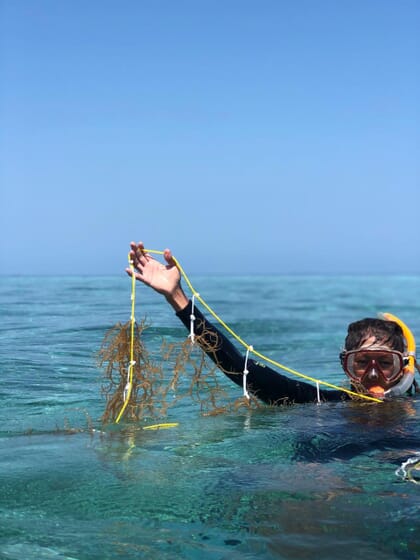
© BWSFA
Since then, I’m proud to report they have established their board of directors, are developing a strategic plan, have launched their website, started their own farm, and are creating several seaweed-based value-added products. Passion, commitment and a shared vision for more resilient communities paved the way for this valuable partnership.
As tourism has become non-existent, due to Covid-19 restrictions, sustainable seaweed mariculture feels like a life raft in a sea of uncertainty for many of our coastal communities in Belize. More so now than ever before, our vision to sustainably increase seafood supply and support livelihoods in coastal communities while achieving our conservation objectives must be achieved.
TNC and our partners’ holistic seaweed strategy encompasses ecological and social science, the development of strong governance and policy, markets and business development, implementation of better management practices, and equity and empowerment for both the men and women of Belize. When restrictions are eased and we can all travel safely again, I welcome you all to visit our beautiful country and support our sustainable industries that not only help restore and protect our precious marine ecosystems, but contribute to increased equity and empowerment of our communities.

